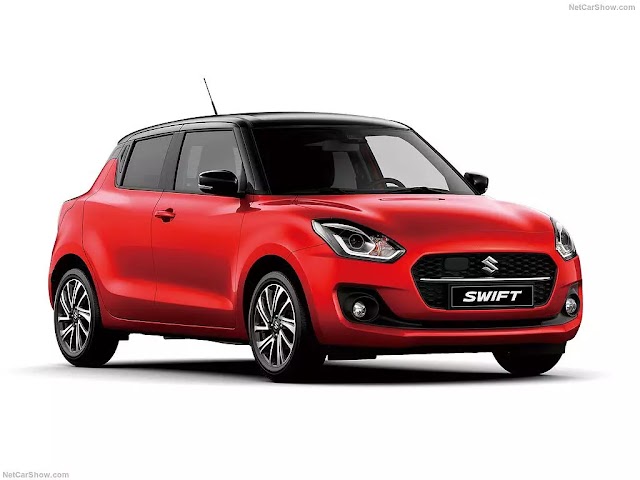
As more and more vehicles enter the market, choosing the right one can be overwhelming. Factors like price, features, fuel efficiency, and safety ratings can all influence your decision. But with the right information and guidance, you can find a vehicle that meets all your needs. In this article, we will guide you through the process of choosing the best vehicle for you.
Table of Contents
- Determine Your Needs and Budget
- Research Different Types of Vehicles
- Consider the Vehicle's Features and Technology
- Evaluate Fuel Efficiency and Emissions
- Review Safety Ratings and Features
- Assess Reliability and Maintenance Costs
- Test Drive and Inspect the Vehicle
- Negotiate Price and Financing
- Make a Final Decision
Determine Your Needs and Budget
The first step in choosing a vehicle is to determine your needs and budget. Ask yourself questions like:
- What will I primarily use the vehicle for?
- How many passengers will I regularly transport?
- Do I need a lot of cargo space?
- What is my maximum budget for a vehicle?
- How much can I afford to spend on monthly payments and insurance?
Answering these questions will help you narrow down your options and make an informed decision.
Research Different Types of Vehicles
Once you have a general idea of your needs and budget, research different types of vehicles that match your criteria. Common types of vehicles include:
- Sedans
- SUVs
- Trucks
- Vans
- Crossovers
Each type of vehicle has its own advantages and disadvantages, so it's important to do your research to determine which one best meets your needs.
Consider the Vehicle's Features and Technology
Once you have narrowed down your options to a particular type of vehicle, consider the vehicle's features and technology. Some common features and technologies to consider include:
- Infotainment systems
- Navigation systems
- Bluetooth connectivity
- Adaptive cruise control
- Blind spot monitoring
- Lane departure warning
Evaluate these features based on your needs and preferences, and prioritize the ones that are most important to you.
Evaluate Fuel Efficiency and Emissions
Fuel efficiency and emissions are important factors to consider when choosing a vehicle. Evaluate the vehicle's fuel efficiency and compare it to other vehicles in its class. Additionally, consider the vehicle's emissions and look for models with low emissions or hybrid/electric options.
Review Safety Ratings and Features
Safety should always be a top priority when choosing a vehicle. Research the vehicle's safety ratings from organizations like the National Highway Traffic Safety Administration (NHTSA) and the Insurance Institute for Highway Safety (IIHS). Additionally, look for vehicles with safety features like:
- Backup cameras
- Forward collision warning
- Automatic emergency braking
- Pedestrian detection
Assess Reliability and Maintenance Costs
No one wants a vehicle that constantly breaks down or requires expensive repairs. Research the vehicle's reliability ratings and maintenance costs to ensure you are making a sound investment. Websites like J.D. Power and Consumer Reports can provide valuable information in this area.
Test Drive and Inspect the Vehicle
Before making a final decision, test drive and inspect the vehicle thoroughly. Pay attention to factors like:
- Comfort and driving experience
- Noise level
- Visibility
- Braking and acceleration
- Overall condition and maintenance history
Negotiate Price and Financing
Once you have decided on a vehicle, negotiate the price and financing terms with the dealer. Research the vehicle's value beforehand to ensure you are getting a fair price. Additionally, consider financing options like leases or loans to find the best option for your budget.
Are you in the market for a new vehicle but feeling overwhelmed with all the options available? Choosing the best vehicle for you can be a daunting task, but with a little research and careful consideration of your needs, preferences, and budget, you can make an informed decision. In this article, we will guide you through the process of choosing the best vehicle for you.
Assess Your Needs
The first step in choosing the best vehicle for you is assessing your needs. Consider your daily routine, lifestyle, and priorities to determine what type of vehicle will best meet your needs. Do you need a vehicle for commuting to work, running errands, or transporting your family? Do you require a vehicle with a lot of cargo space or towing capacity? Do you prioritize fuel efficiency or luxury features? Answering these questions will help you narrow down your options and choose a vehicle that meets your specific needs.
Set a Budget
Once you have determined what type of vehicle you need, set a budget for yourself. Consider how much you can afford to spend on the vehicle, including the down payment, monthly payments, insurance, and maintenance costs. It is important to keep in mind that the total cost of ownership includes more than just the purchase price. Setting a budget will help you avoid overspending and ensure that you can comfortably afford the vehicle.
Research Different Types of Vehicles
With your needs and budget in mind, research different types of vehicles to determine which one is best for you. Some common types of vehicles include sedans, SUVs, trucks, and minivans. Each type has its own set of features, benefits, and drawbacks. For example, sedans are typically more fuel-efficient and easier to maneuver, while SUVs offer more passenger and cargo space. Researching different types of vehicles will help you determine which one best meets your needs.
Evaluate Features and Technology
After determining the type of vehicle you need, evaluate the features and technology available in the vehicles you are considering. Look for features like safety technology, infotainment systems, and comfort features. Consider which features are most important to you and prioritize them when evaluating different vehicles.
Consider Fuel Efficiency
Fuel efficiency is an important factor to consider when choosing a vehicle. Look for vehicles with high fuel efficiency ratings to save money on gas and reduce your carbon footprint. Consider hybrid or electric vehicles if you want to prioritize fuel efficiency.
Evaluate Safety Ratings and Reliability
Safety should be a top priority when choosing a vehicle. Look for vehicles with high safety ratings from organizations like the National Highway Traffic Safety Administration (NHTSA) and the Insurance Institute for Highway Safety (IIHS). Additionally, evaluate the reliability of the vehicle. Look for vehicles with a good track record of reliability to ensure that you are getting a vehicle that will last.
Test Drive and Inspect the Vehicle
Once you have narrowed down your options, schedule a test drive and inspect the vehicle. Test driving the vehicle will give you a feel for how it drives and whether it meets your needs. Inspecting the vehicle will allow you to check for any defects or issues before making a purchase. It is also a good idea to bring a mechanic or someone knowledgeable about vehicles with you to inspect the vehicle thoroughly.
Negotiate the Price and Financing Terms
After test driving and inspecting the vehicle, negotiate the price and financing terms. Research the vehicle's value beforehand to ensure that you are getting a fair price. Additionally, consider financing options like leasing or financing through a dealership to find the best terms for your budget.
Make a Final Decision
After evaluating all the factors, make a final decision on the vehicle that best meets your needs. Once you have chosen your vehicle, make sure to read and understand the purchase agreement before signing. Make sure
FAQs
- What is the most important factor to consider when choosing a vehicle?
- The most important factor to consider when choosing a vehicle is your personal needs and priorities.
- Should I prioritize fuel efficiency or luxury features?
- It depends on your personal preferences and budget. If you prioritize fuel efficiency, consider hybrid or electric vehicles. If you prioritize luxury features, consider higher-end models.
- Is it important to test drive a vehicle before purchasing it?
- Yes, it is important to test drive a vehicle to determine if it meets your needs and feels comfortable to drive.
- Can I negotiate the price of a vehicle?
- Yes, you can negotiate the price of a vehicle. Research the vehicle's value beforehand to ensure that you are getting a fair price.
- How do I ensure that I am getting a reliable vehicle?
- Look for vehicles with a good track record of reliability and evaluate safety ratings from organizations like the National Highway Traffic Safety Administration and the Insurance Institute for Highway Safety. Additionally, inspect the vehicle thoroughly before purchasing it.





0 Comments